Does My Child Have a UTI?

- posted: Jan. 05, 2022
When bacteria enter the bladder or the kidneys this can result in a urinary tract infection. Unfortunately, UTIs are quite common in infants and kids, so it’s important to recognize the signs and symptoms so that you can turn to your child’s pediatrician for treatment. After all, a urinary tract infection will not get better without treatment.
There are Two Main Types of Urinary Tract Infections
Children can develop either an upper or a lower urinary tract infection. An upper infection impacts the bladder while a lower infection impacts the kidneys. Some symptoms may be similar, but there are distinguishable differences between the two. Urinary tract infections can be caused by various bacteria, but seven main types of bacteria are most likely to cause UTIs. The bacteria that accounts for the majority of UTIs in children is E. coli.
Know the Risk Factors for Childhood UTIs
If your child has been on antibiotics for a long period of time, or if they have a weakened immune system, these are factors that could increase their risk for developing a UTI. It’s important to speak with their pediatrician to discuss ways to lessen their risk for these infections, particularly if they are dealing with frequent infections. Sometimes, structural abnormalities within the urinary tract can be to blame for UTIs.
Recognize the Signs and Symptoms
To ensure that your child gets the proper medical attention when necessary, you first need to be able to spot the warning signs of a UTI. It can be a bit more challenging to recognize these symptoms in infants and young children who may not be able to tell you the symptoms and issues they are experiencing. UTIs in babies may cause:
- Abdominal pain
- Strong-smelling urine
- Fever
- Increased irritability
- Weight loss
- Decreased appetite (fewer feedings)
- Exhaustion
- Vomiting and diarrhea
Older children may exhibit these symptoms,
- An increased urgency or need to go to the bathroom
- Pain with urination
- Wetting the bed
- Strong-smelling urine
- Fever
- Chills
- Fatigue
- Nausea and vomiting
- Blood in the urine
- Lower back pain (more common in lower urinary tract infections)
If your child is displaying symptoms of a UTI, it’s important that you call their pediatrician right away to schedule an appointment. A round of antibiotic therapy can help to clear up the UTI so they start feeling better right away.

- posted: Jan. 05, 2022
When bacteria enter the bladder or the kidneys this can result in a urinary tract infection. Unfortunately, UTIs are quite common in infants and kids, so it’s important to recognize the signs and symptoms so that you can turn to your child’s pediatrician for treatment. After all, a urinary tract infection will not get better without treatment.
There are Two Main Types of Urinary Tract Infections
Children can develop either an upper or a lower urinary tract infection. An upper infection impacts the bladder while a lower infection impacts the kidneys. Some symptoms may be similar, but there are distinguishable differences between the two. Urinary tract infections can be caused by various bacteria, but seven main types of bacteria are most likely to cause UTIs. The bacteria that accounts for the majority of UTIs in children is E. coli.
Know the Risk Factors for Childhood UTIs
If your child has been on antibiotics for a long period of time, or if they have a weakened immune system, these are factors that could increase their risk for developing a UTI. It’s important to speak with their pediatrician to discuss ways to lessen their risk for these infections, particularly if they are dealing with frequent infections. Sometimes, structural abnormalities within the urinary tract can be to blame for UTIs.
Recognize the Signs and Symptoms
To ensure that your child gets the proper medical attention when necessary, you first need to be able to spot the warning signs of a UTI. It can be a bit more challenging to recognize these symptoms in infants and young children who may not be able to tell you the symptoms and issues they are experiencing. UTIs in babies may cause:
- Abdominal pain
- Strong-smelling urine
- Fever
- Increased irritability
- Weight loss
- Decreased appetite (fewer feedings)
- Exhaustion
- Vomiting and diarrhea
Older children may exhibit these symptoms,
- An increased urgency or need to go to the bathroom
- Pain with urination
- Wetting the bed
- Strong-smelling urine
- Fever
- Chills
- Fatigue
- Nausea and vomiting
- Blood in the urine
- Lower back pain (more common in lower urinary tract infections)
If your child is displaying symptoms of a UTI, it’s important that you call their pediatrician right away to schedule an appointment. A round of antibiotic therapy can help to clear up the UTI so they start feeling better right away.
Pediatric Group Associates
1625 Avenue Of The Cities,
Moline, IL 61265
Our Sick Clinic is currently open 8 am to 10:45 am Monday through Friday (this is NOT a walk-in clinic).
We recommend using our self-scheduling link , appointment request link, or calling us before arriving at the office to reserve your time slot.
The sick clinic is for acute problems like rashes, insect bites, poison ivy, sunburn and ear pain. We continue to take additional precautions to ensure the safety and health of our patients and staff through the use of our mobile registration and gathering information in advance of your appointment.
Thank you for your continued patience and support as we strive to meet the ongoing needs of our community in the safest possible manner.
Our Moline office is open from 8 am to 1 pm and 2 pm to 5 pm Monday through Friday. We have limited Saturday availability for acute sick symptoms only through our Facebook self-scheduling link which will be posted each Friday evening by 7 pm CST. We do not have regular office hours on Sunday, however there is a provider on-call in case of emergencies.

